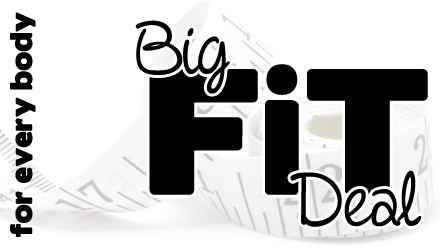Have you ever stumbled across something that, even if you weren’t its intended audience, just completely resonated with you? That happened to me the other day when I ran across a quote by writer Junot Díaz. Here’s what he had to say:
[I]f you want to make a human being into a monster, deny them, at the cultural level, any reflection of themselves. And growing up, I felt like a monster in some ways. I didn’t see myself reflected at all. I was like, “Yo, is something wrong with me? That the whole society seems to think that people like me don’t exist?” And part of what inspired me, was this deep desire that before I died, I would make a couple of mirrors. That I would make some mirrors so that kids like me might see themselves reflected back and might not feel so monstrous for it.
Now, Mr. Díaz wasn’t talking about being fat, but when I read this, it immediately resonated with me – and deeply. Growing up, I almost never saw myself reflected anywhere. Imagine that: Watching TV, reading magazines, seeing a movie… and almost never seeing someone like you, a young fat person. Even worse, if you did see someone like you, they were almost certainly portrayed at lazy, greedy, gluttonous, inferior, shameful, and the butt of every joke. How easy it would be to feel like a monster!
One of the few fat role models I had as a kid was Doris Schwartz, a character on my favorite show, Fame. I loved Doris. Not only was she funny and sweet, she was a fat girl doing what I dreamed of – acting and singing. Brilliant!
Except of course she wasn’t fat at all. Here’s a shot of Doris (as played by the lovely and talented Valerie Landsburg) in the opening credits:
Yep, that’s “fat” Doris, who spends an episode going on a crash diet, starving herself, fainting, and finally learning that she is okay the way she is (phew!). Here’s a screen grab from that episode, in a scene where Doris laments to her friend Danny that she is sick of not getting what she wants because of her weight:
Rewatching this episode the other day had me shaking my head. Not only because the writers and producers of this show thought this was a good idea for a storyline (I am not at all opposed to weight-based plots, but no one seems to be able to do one in a way that treats characters with much dignity, respect, or accuracy), but because I believed it! They told me Doris was fat, and I believed it! Until I rewatched the show as an adult, I totally remembered Doris as being quite fat. Wow.
Here’s one more screen cap, from a scene where Doris enlists her friend Bruno to help her not want to eat. The quote is a mantra Bruno suggests for her.
Ah, what a message! Of course, Doris learns her lesson after fasting for three days and passing out during Miss Sherwood’s English class. So, victory? But again: This character was one of my only mirrors growing up as a fat kid, and what an inaccurate mirror it was.
Mr. Díaz is right: If society doesn’t provide us mirrors of ourselves, then we end up feeling like monsters. This is why we need body diversity everywhere. The more bodies we see, the more kids will understand that they are okay the way they are. They won’t starve themselves for three days and end up passing out in English class because they’re a size four instead of a zero.
Now some people believe that showing fat bodies in the media encourages people to be fat and will cause our country to fall into the sea because we’re all obese. You know what I have to say about that?
Until the media embraces bodies of all shapes and sizes, the best thing we can do to provide mirrors for children (and ourselves) is to make them. Social media is a great starting point. While we aren’t going to change media (or the opinions of fat bigots) overnight, those of us with fat bodies can refuse to be invisible. We can live loudly and proudly in our bodies just as they are. We can stare boldly into our own mirror, and then turn that reflection and show it to the world.
(If you want to watch that Fame episode, you can find it on YouTube here. )





